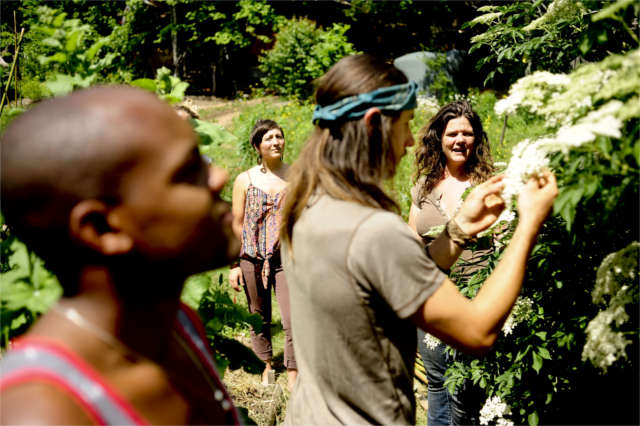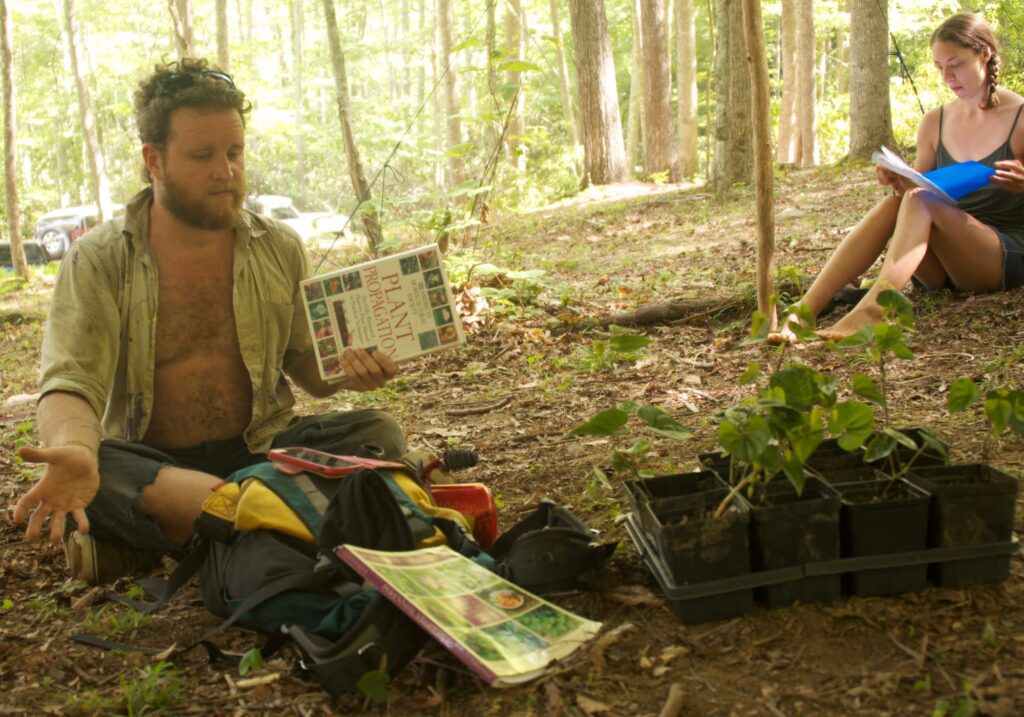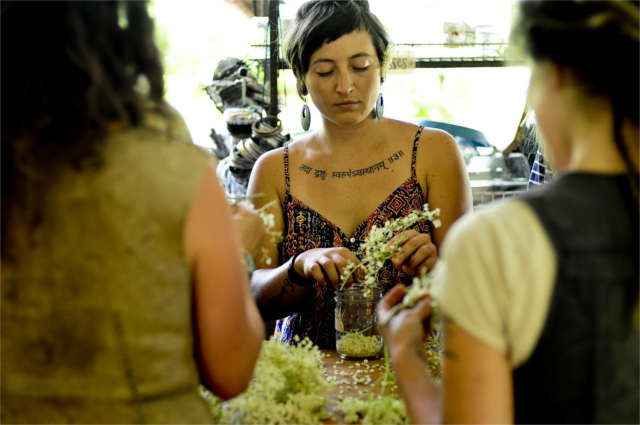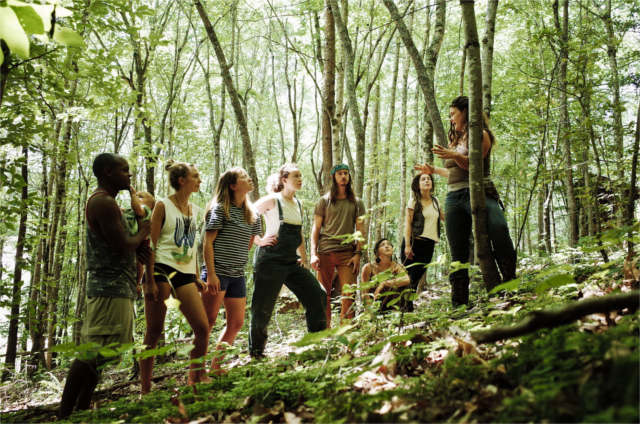An Ancient Way of Learning Herbs in the Modern World
What is an Herbal Apprenticeship?
An herbal apprenticeship is an in-depth learning experience all about plants. Apprentices live and learn alongside teachers, working with them and getting one-on-one attention and guidance. Our ancestors shared herbal knowledge this way: they passed it from one generation to the next. Few of us have living relatives who maintained such wisdom, so we didn’t grow up learning about herbalism alongside a parent or grandparent. The apprenticeship model is a way to reconnect with this ancient way of learning.
The human guide is not the only teacher when learning about herbs this way. The plants themselves are able to participate in the process. From planting seeds, to harvesting and making medicine, apprentices get to know the plants like family members. When the classroom is day-to-day living, our minds tend to relax. When we learn with our hands, doing things over and over again as we would in “real life,” our understanding grows deeper. Instead of trying to cram in a bunch of new information in the short timespan of a class, an herbal apprenticeship gives the opportunity to immerse oneself in the subject at hand.
Why Not Just Learn About Herbs from Books?
There are literally thousands of books about herbs and plants out there. Some of these books are amazing, and we use them on a regular basis. Others are cumbersome and overwhelming. A few are even full of false information!
It is certainly possible to learn a lot about plants from books, but an herbal apprenticeship builds an experiential foundation. You cannot ask a book a question. You cannot have a conversation with a book if it presents something that you don’t understand. Many books don’t have up-close photos of every plant, making identification challenging. Also, common names of plants are often used in books. They can refer to different actual plants and be confusing.
Living alongside experienced gardeners and herbalists for a seasonal apprenticeship opens up the space for a personalized dialogue. Nobody has all the answers or knows about all the plants. But those with more experience can help identify the right question to ask, and where the answer might be found. Plus, getting the personal scoop on the best herbal books is a great way to build a fantastic library without wasting money or time on less-than-awesome choices!
Why Choose an Herbal Apprenticeship over a Class
Becoming an herbal apprentice is not for everyone. If you have a full-time job or family commitment, taking a shorter herbal workshop or wildcrafting excursion is a great way to learn about healing plants. On the other hand, if you have space in your life for a more immersive experience, the herbal apprenticeship model has a lot to offer.
One huge benefit of an apprenticeship over a more specialized class or program is the multifaceted approach. Apprentices get to experience the whole process of growing and working with plants, at the pace of the plants themselves. On a walk through the woods, you might encounter a particularly special or interesting plant and get to learn about it right then and there. While weeding in the garden, you might meet a useful edible or medicinal “weed,” like chickweed or pokeweed, and learn how to harvest and utilize that plant because it happened to be abundant and available that day. These kinds of experiences are commonplace for herbal apprentices. The immersive style of learning is, by nature, fluid and flexible. It also allows for spontaneity and individualization. Because an herbal apprenticeship spans several months, apprentices get to watch and follow the plants through seasonal changes.
Another benefit is that herbal apprentices can dive into learning without having to manage as many other aspects of their daily life. Doing an apprenticeship is a full-on commitment. While there still is free time to do what you want, the apprenticeship is the main focus. This can allow for much more focused learning. Plus, the lack of distractions and responsibilities pulling you in many directions can be very refreshing and will enhance your ability to absorb new information.
How to Find an Herbal Apprenticeship
If you have decided that the apprenticeship model is right for you, how do you find the right one? There are two main ways to go about embarking on this kind of learning journey:
In the first scenario, some teachers and schools have created apprenticeship programs that already have a curriculum and format. They have been set up to provide a place to live, along with structured and flexible learning time to apprentices. If you are a beginner, this kind of situation is probably ideal.
The second, more traditional path to apprenticeship was to find a teacher or master in your field and to offer your time and energy to them. Oftentimes, herbal apprentices of days past would show up and weed the garden or clean bottles in the apothecary for months before their teacher shared any wisdom with them. This period of service prior to (and during) an apprenticeship was a kind of informal exchange for the energy of teaching, and a way to show the teacher that the student was serious about learning. If you already have some experience and have access to such a master, this approach to finding an herbal apprenticeship could work well for you.
Revitalizing Plant Wisdom
However you approach learning about herbs, remember that they have a lot to teach you. If you don’t have space in your life right now for an immersive apprenticeship, there is still a lot to learn from books, classes, and connecting with other herbalists. If you can dive all the way in, doing an apprenticeship will help you break through the “green wall” and begin to cultivate a rich relationship with the plant world. Just because our generation didn’t grow up with parents or grandparents to show us how to work with plants doesn’t mean that the next generation won’t have that. We can revitalize herbal wisdom and share it with the people in our lives, young and old, to cultivate healing, connection and respect for the natural world.





